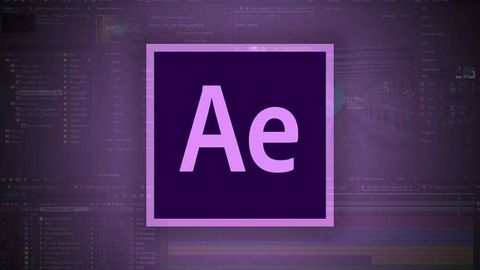These programs cover fundamental subjects such as business analytics, digital strategy, finance principles, marketing insights, entrepreneurship, and organizational communication. Many universities worldwide now offer online bachelor's and master’s degrees in business, supported by high-quality digital learning ecosystems. This shift reflects a broader movement toward technology-enabled education and data-driven learning environments.
Importance
Online business degree programs matter today because they help learners build foundational knowledge in key areas of modern business. As industries continue evolving with AI-powered tools, digital workflows, and global competition, structured business education has become more relevant for learners who want to understand strategy, planning, and analytical thinking.
These programs are useful for:
-
Students seeking flexible academic learning
-
Individuals looking to build business skills for personal development
-
Professionals who want updated business insights and modern management knowledge
-
Learners interested in entrepreneurship and digital innovation
They solve common challenges such as limited access to on-campus institutions, rigid schedules, or geographic barriers. Additionally, they help learners stay aligned with current business trends, including digital transformation, sustainability practices, analytics-driven decision-making, and global market understanding.
Recent Updates
The landscape of online business education has experienced several notable updates in the past year. These changes reflect new technologies, evolving learner expectations, and improved academic standards.
AI-Powered Learning Experiences (2024–2025)
Many universities have integrated AI-driven tutoring, automated feedback systems, and adaptive learning recommendations. These updates help personalize lessons and support students who need more guided learning.
Growth of Analytics and Digital-First Curriculum (2024)
Programs increasingly include modules centered on business analytics, digital communication, cybersecurity awareness, and sustainable business models. This aligns with global demand for analytical thinking and strategic planning in a technology-focused environment.
Accreditation and Quality Enhancements (2025)
Education bodies in several countries introduced updated quality frameworks to enhance online program evaluation. These changes help ensure course content meets modern academic standards in areas like assessment accuracy, digital accessibility, and data security.
Global Participation Trends (2024–2025)
Recent reports show steady growth in online enrollment as learners seek flexible formats that do not require travel or relocation. This trend continues to influence how universities design learning platforms, course navigation, and collaboration tools.
Laws or Policies
Regulations affecting online business degree programs vary by country, but several common areas influence how these programs operate.
Accreditation and Academic Standards
Governments and educational authorities establish accreditation rules to ensure that online degrees meet recognized academic levels. These guidelines address curriculum structure, learning outcomes, assessment quality, faculty qualifications, and institutional transparency.
Digital Learning Compliance
In many regions, rules require institutions to maintain secure platforms, protect learner data, and ensure accessibility for all students. This includes compliance with digital privacy regulations such as GDPR in Europe or equivalent standards in other countries.
Cross-Border Education Policies
Some countries maintain policies on international online degrees, requiring institutions to register local representation or follow quality assurance protocols when offering programs to foreign students.
Financial Support or Learning Initiatives
Certain governments provide digital learning initiatives that encourage participation in accredited online education. These policies promote broadened access to digital education, technology-enabled tools, and skill-development resources.
Overall, laws and policies help maintain credibility, transparency, and accountability within online business education.
Tools and Resources
Learners exploring online business degree programs often use digital tools, academic platforms, and reference resources to support their learning. Below are helpful options that align with research, planning, and studying.
Academic Tools
-
Google Scholar – For discovering research papers and academic literature
-
Microsoft OneNote – For organizing class notes and study material
-
Zotero – For research citations and reference management
-
Notion – For tracking assignments, deadlines, and personal learning progress
Business Learning Resources
-
Coursera (Business Foundations) – Useful for introductory concepts
-
edX Business Courses – Offers structured learning insights
-
Khan Academy (Economics & Finance) – Helpful for fundamentals
-
MIT OpenCourseWare – Free access to business-related lecture materials
-
Harvard Business Review (Insights Articles) – For updated industry perspectives
Planning and Comparison Tools
-
Institution Accreditation Checkers on official education body websites
-
Program Outcome Comparison Tables
-
Curriculum Maps provided by universities
-
Digital Skill Assessment Tools for self-evaluation
Sample Comparison Table: Core Areas of Online Business Degrees
| Component | What It Covers | Why It Matters |
|---|---|---|
| Business Analytics | Data insights, decision-making, interpretation | Supports analytical thinking and informed planning |
| Marketing Fundamentals | Branding, audience research, digital channels | Helps understand communication and market behavior |
| Financial Principles | Accounting basics, budgeting concepts | Builds foundational financial awareness |
| Management Concepts | Leadership, planning, organizational structure | Supports strategic and team-based thinking |
| Entrepreneurship Basics | Innovation, idea development, operational planning | Useful for creative thinking and project planning |
FAQs
What can I expect to learn in an online business degree program?
Learners typically study business communication, finance principles, marketing insights, analytics, leadership concepts, and organizational behavior. Many programs also include digital strategy, project planning, and decision-making models.
Are online business degrees recognized?
Accredited online programs follow the same academic standards as traditional degrees. Recognition depends on the institution’s accreditation status and local education regulations.
How do online programs deliver lectures and assessments?
Courses are delivered through digital platforms using video lectures, reading material, discussion forums, and timed assessments. Many programs use AI-supported tools for feedback and personalized learning guidance.
What skills are helpful before starting?
Basic communication, digital literacy, analytical thinking, and an interest in business concepts are beneficial. Most programs are designed to support learners at different starting levels.
Do online business degrees include specialization options?
Many programs offer specializations such as analytics, digital strategy, entrepreneurship, marketing, leadership, or organizational development. The options vary depending on the institution.
Conclusion
Online business degree programs provide a flexible and accessible way for learners to explore structured business education. They support academic growth through digital platforms, updated curriculum frameworks, and research-driven insights. With ongoing advancements in AI-supported learning, enhanced accreditation standards, and expanding global participation, these programs continue to evolve in relevance and quality.
Learners benefit from clear pathways to understanding business fundamentals, analytical thinking, communication strategies, and digital transformation concepts. By using credible resources, reliable academic tools, and accurate program information, anyone can explore online business education confidently and make informed learning decisions.





